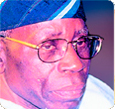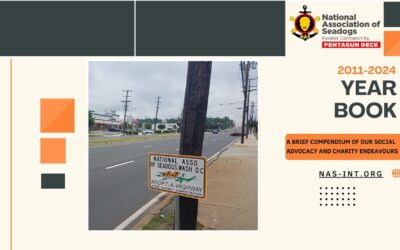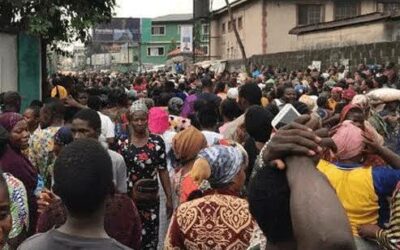The death at the hands of unknown assailants of a prominent member of the Peoples Democratic Party (PDP) and member of the House of Representatives, 61-year old Segun Moses Oladimeji, has again brought to the fore the issue of a cancerous culture of murder and assassinations in Nigeria.
On September 14, 2007, whilst Oladimeji was having a drink with friends at a local bar in Ibadan around 9 p.m., some men walked in asking for the 'big man'. Believing them to be party supporters, Oladimeji came forward and was shot several times by the assailants who immediately fled the scene. The police as usual have embarked on a frenzied search for the killers, promising that they would be apprehended. But Nigerians have heard these sorts of promises many times before. If experience is anything to go by, the police will make a great play at hot pursuit during which they would oftentimes arrest persons quite unconnected with the murder and thereafter release them for want of evidence.
Then as days grow into weeks and weeks into months and even years, nothing more will be heard. Moreover, fresh homicides tend to eclipse old ones and the police, adept at musical chairs, will embark on another frenzied hot pursuit. The situation in the country is so bad that anybody can be killed and nothing would happen, unless the killer is pricked by conscience to make a confession. The police whose duty it is to bring criminals to justice appeared to have consistently failed in this regard throughout the eight years of the Obasanjo administration. And now, criminality is again rearing its head in the first few months of the Yar'Adua administration
We had warned in our editorial on President Yar'Adua's first 100 days in office that security is the foremost challenge confronting his administration as life has become so cheap in Nigeria. Everywhere people are making their own arrangements for security. Nigerians are hiding behind high walls and every house is built like a fortress. Many streets are locked at night, impeding traffic. These measures have become necessary because Nigerians know that should someone kill them, the police may not be able to help in any way. High profile murders are occurring all the time but the perpetrators are never found. There is therefore a crying need for a new style of law enforcement for Nigeria .
Politics has become a game of blood and no one is immune to it. Not long ago, Professor Wole Soyinka drew attention to the existence of a nest of killers within the political parties. Subsequent events have borne out the truthfulness of his observation. Our inability to contain violence and treachery in public life has culminated in a shambolic election in which good men and political brigands have been lumped together in a legislature that will inevitably be noted more for discord than harmony.
Already, in less than four months, hair-raising cases of corruption have been reported in a legislature where a hodge-podge of honourable members have begun engaging in unrestrained brawls on the floor of the House. But more importantly, if nothing is done to curb these political murders, good men will shun elective office and the country as a whole will be worse for it. Criminality must be removed from governance through the conduct of free and fair elections. The survival of Nigeria may well depend on it.
The spate of political murders in the country is horrendous. Consider that Chief Bola Ige, an Attorney General and Minister of Justice of Nigeria was murdered in his house on December 23, 2001. The police are still looking for his killers. In the meantime, his heartbroken wife of many years also died. Harry Marshal, a national coordinator of an opposition party was murdered in his house. Another chieftain of Rivers State politics and Vice chairman of the South-South zone of the PDP, Chief Kala Dikibo, was shot dead in his car. Engineer Funsho Williams, a major contender for the governorship position of Lagos State, was murdered in his house.
A former Vice Chancellor of the University of Nigeria was gunned down while returning from work and Chief Victor Nwankwo, the Chairman of Fourth Dimension, a publishing firm was similarly murdered. In Ekiti State, a frontline governorship candidate, Dr .Ayodeji Daramola was killed on August 14, 2006. In Kano, gunmen shot dead a radical Moslem cleric, Sheikh Jaafar Adam, in his mosque and fired on the congregation, killing two more people. Adam, a fiery critic of Northern governors was killed a day before the gubernatorial elections on Friday, April 13, 2007. Barely three months later another Moslem cleric, Sheikh Umaru Hamza Dan Maishi'a was murdered in Sokoto, near Sultan Bello Mosque.
It is impossible to recount the many murders and assassinations that have occurred in this country in recent years. We can only comment on reported cases but we know that a lot more cases go unreported. The majority of these murders and assassinations are political in nature although some are the handiwork of common criminals. We reproduce below a sampling of unsolved murders hoping that persons and organisations who read this editorial may be moved to do something about what is by all accounts a deplorable situation:
- Ade Awonusi, January 2, 2001.
- Hon. Monday Ndor, August 19, 2001.
- Barr. Barnabas Igwe and his wife, Amaka, September 1, 2001.
- Hon. Odunayo Olagbaju, December 19, 2001.
- Chief Bola Ige, Attorney General, December 23, 2001.
- Chief Victor Nwankwo, August 29, 2002.
- Isiaka Mohammed, September 24, 2002.
- Professor Chimere Ikoku, October 13, 2002.
- Theodore Egwuatu, February, 2003.
- Rasak Ibrahim, March 20, 2003.
- Anthony Nwudo, March 21, 2003.
- Ikenna Ibor, March 27, 2003.
- Emma Onyewuchi, April 19, 2003.
- Toni Dimegwu, April 29, 2003.
- Chief Ajibola Olanipekun, June 20, 2003.
- Andrew Agom,March 3, 2004.
- Chief Philip Olorunnipa, March 7, 2004.
- Sunny Atte, February 5, 2005.
- Alhaji Alabi Olajokun, May 15, 2005.
- Patrick Origbu, June 3, 2005.
- Lateef Olaniyan, July 16, 2005.
- Anthony Ozioko, July 27, 2005.
- Jesse Aruku, June 30, 2006.
- Hajiya Sa'adatu Rimi, January 14, 2006.
- Engr. Olufunsho Anthony Williams, July 27, 2006.
- Dr. Ayodeji Daramola, August 14, 2006.
- Chief Layi Balogun, December 7, 2000.
- Chief Lawson Onokpasa, February 5, 2007.
- Sheikh Jafaar Adam, April 13, 2007.
- Tunde Awanebi, May 30, 2007.
- Alhaji Mohammed Auwal Jibrin, June 19, 2007.
- Sheikh Umaru Hamza Dan Maishi'a, July 18, 2007.
- Victor Obajaiye, August 19, 2007.
Editorial
The Guardian
Tuesday, September 25, 2007



